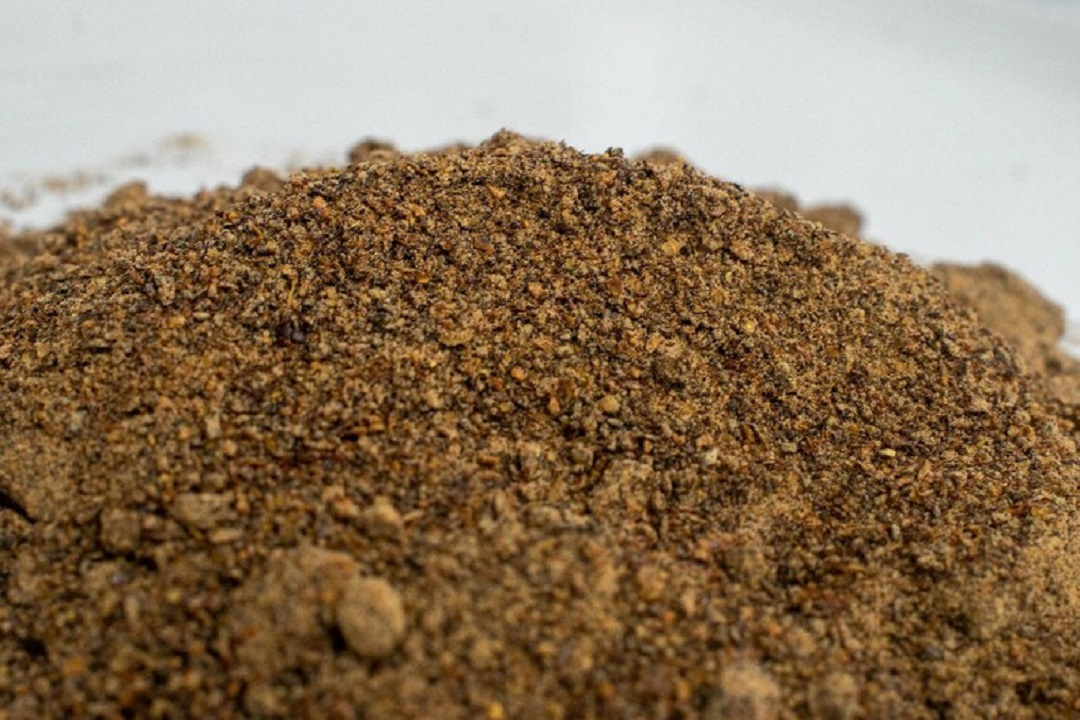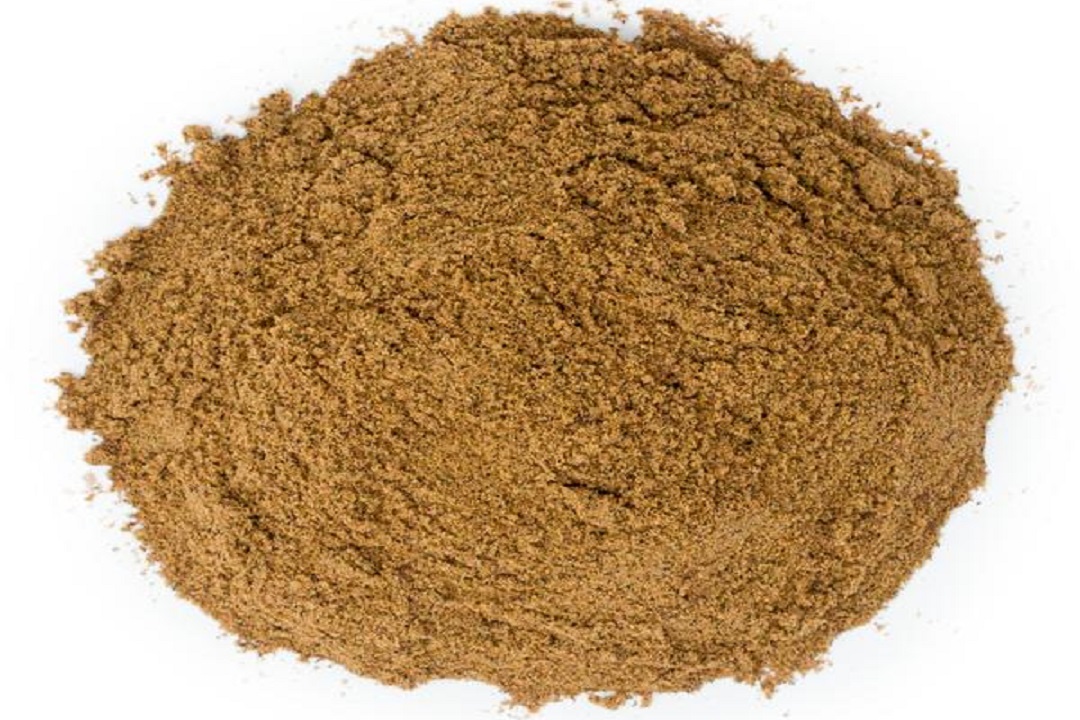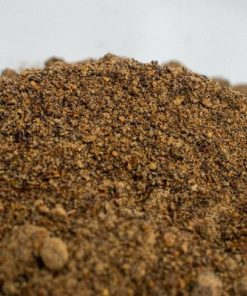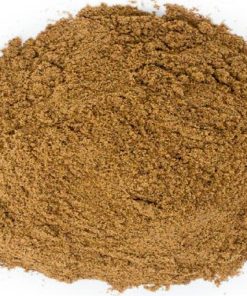What is Banga Spices? Why Buy It?
Banga Spices refers to a traditional West African spice blend primarily used in the preparation of Banga soup, a delicacy native to Nigeria and parts of the Niger Delta. The spices are derived from a mix of aromatic seeds, roots, and herbs that are typically ground into a fine powder or paste. Common ingredients include beletete (bush onion), rohojie, oburunbebe stick, ataiko, and irugeje, although exact compositions vary by region and culinary tradition.
Unlike generic spice blends, Banga Spices are deeply rooted in cultural heritage. They deliver a distinctive earthy, nutty, and slightly peppery flavor profile that elevates palm fruit-based soups and sauces. The blend’s complex aroma and taste are prized in West African households and increasingly sought after by diasporic communities and gourmet chefs around the world.
From a nutritional standpoint, Banga Spices are typically free from artificial additives and rich in natural antioxidants, essential oils, and plant-based micronutrients. The ingredients used are traditionally sun-dried and hand-ground, preserving their organic quality and cultural authenticity.
It offers an authentic flavor that simply cannot be replicated with standard seasonings. Crafted from a unique blend of indigenous spices, they bring a rich, earthy depth that’s essential to traditional West African cuisine. Beyond taste, Banga Spices are valued for their health benefits, as they contain natural phytochemicals known for their anti-inflammatory, antimicrobial, and digestive properties.
Deeply rooted in tradition, these spices hold cultural significance, especially in the preparation of Banga soup—a cherished dish often served during ceremonies and festive gatherings. As African cuisine rises in global popularity, there is a growing demand for genuine spice blends like Banga Spices, appreciated for their bold flavor and authenticity.
Their appeal goes beyond tradition; Banga Spices are now being embraced for their culinary versatility. While they remain a staple in soups, chefs and home cooks alike are experimenting with them in sauces, marinades, and even as rubs for grilled meats—bringing a taste of West Africa to dishes around the world.
Applications/Uses of Banga Spices
Banga Spices are versatile and highly aromatic, offering applications that span culinary traditions, health supplements, and even niche segments of the wellness industry.
Culinary Uses
Banga Soup
The most prominent use of Banga Spices is in Banga soup—a rich, palm fruit-based soup traditionally served with starches like fufu or rice. It is a staple in Urhobo, Itsekiri, and Isoko communities of Nigeria. Banga Spices are added during cooking to enhance the soup’s depth and flavor.
Stews and Sauces
In modern kitchens, Banga Spices are used to prepare thick stews and tomato-based sauces, especially in fusion cuisines that blend African flavors with other global dishes.
Grilled Meat and Fish
Used as a dry rub or marinade for grilling meats, especially catfish and goat meat, Banga Spices impart a distinctive charred aroma and earthy tone.
Rice and Pasta Dishes
Creative chefs have begun incorporating Banga Spices into fried rice, jollof rice, and even pasta dishes to introduce a new layer of umami and spice.
Nutraceutical and Medicinal Uses
Banga Spices are known to contain bioactive compounds with numerous health benefits:
Digestive Health
Several components like ataiko and irugeje are used traditionally to soothe stomach disorders.
Antioxidant Properties
The blend is rich in natural antioxidants that fight free radicals and support overall wellness.
Anti-inflammatory Use
Some components have been studied for their ability to reduce inflammation and support joint health.
Cosmetic and Wellness Applications
Although niche, there is growing interest in using Banga Spices in:
Herbal Teas
Components of the spice blend are sometimes infused in hot water to create aromatic and health-boosting teas.
Aromatherapy
The earthy and warm scent of Banga Spices is being explored for use in candles and diffusers targeted at Afrocentric wellness markets.
Cultural and Religious Functions
In some communities, Banga Spices are used in ceremonial cooking, particularly during festivals, weddings, and other traditional rites. The spices are considered sacred in certain contexts, linked to ancestral cooking methods and spiritual identity.
Top Producing/Exporting Countries of Banga Spices
The production of Banga Spices is predominantly artisanal and closely linked to regional agriculture in West Africa. However, with increasing global interest, small-scale industries and agribusinesses have started to formalize the production for both local and export markets.
Nigeria
Nigeria is the largest producer and exporter of Banga Spices, particularly from the Niger Delta regions. States like Delta, Rivers, Bayelsa, and Edo are key centers for harvesting and processing the ingredients. Nigerian exporters often supply African grocery stores in the United Kingdom, United States, and Canada.
Ghana
While not as central to Ghanaian cuisine, the country has started to cultivate and export components used in Banga Spices due to overlapping agroecological conditions and growing pan-African demand.
Cameroon
Cameroon is a secondary producer, contributing certain herbs and roots that are part of the Banga blend. These are often exported in raw form to Nigeria for final processing.
Benin Republic and Togo
These countries play a role in cross-border trade of herbs and spices. Local markets near the Nigeria-Benin border serve as hubs for regional spice commerce.
United Kingdom (Repackaging & Export Hubs)
While not a producer, the UK acts as a major hub for the repackaging and export of Banga Spices to broader European markets. Diasporic entrepreneurs have set up spice businesses that import raw materials from Africa and repackage them for European consumers.
Top Importing Countries of Banga Spices
As the demand for Afrocentric cuisine continues to grow globally, Banga Spices are being imported by several countries, especially where African communities are well-established.
United States
The U.S. is a leading importer of Banga Spices, driven by a sizable Nigerian diaspora and rising curiosity in African culinary traditions. Retailers like African grocery chains and online stores like Amazon now stock various brands.
United Kingdom
The UK is home to a large West African population and sees consistent demand for authentic spice blends, including Banga Spices. Local manufacturers also produce blends for re-export to other European countries.
Canada
The growing African immigrant population in Canada has created a market for authentic spices. Banga Spices are commonly imported through Toronto, Montreal, and Vancouver.
Germany
Germany’s multicultural culinary scene includes African shops and restaurants, especially in cities like Berlin and Frankfurt, where Banga Spices are steadily gaining traction.
United Arab Emirates
The UAE, especially Dubai, serves as a logistics hub for African food products. African communities and restaurants across the Gulf Cooperation Council (GCC) import Banga Spices regularly.
France
France imports Banga Spices largely due to its strong ties with West African countries like Senegal, Ivory Coast, and Mali. Ethnic supermarkets and Afro-Caribbean shops in Paris and Marseille stock these blends.
South Africa
Within Africa, South Africa is a growing importer, given its developed retail chains and diverse population. Banga Spices are sold in Afrocentric sections of major grocery outlets.
International Price of Banga Spices Per KG
The unit price ($ per KG) of Banga Spices in the international market depends on a host of different factors including:
- The grade of the produce (usually the more the processing, the higher the price)
- The price of the raw material
- Age of the seeds (this can affect the price)
- Production levels in producing countries
- Economic conditions and the exchange rates between the currencies of the producing and importing countries.
- The quantity ordered (the greater the quantity, the cheaper you can get it per ton)
- Harvest season (it is more costly when it is out of harvest season).
- Weather conditions (some commodities are sensitive to weather conditions).
- Freight & haulage cost
- Percentage of markup
- Import duties, trade tariffs and trade agreements between countries
- Distance from the country of origin
- Technology/Infrastructure available in country of origin
- Relationship between the buyer and seller
That said, as at March 2025, Banga Spices costs between $4 and $25 Per KG in the international market.
How To Safely Source for Your Banga Spices Produce
If you find the right export company, buying directly from them can make the purchase process easy and stress-free, when compared with doing the sourcing on your own. That said, there are few things to note when dealing with an export company in Nigeria or Africa. The specific requirements for Nigeria are listed below, but they mostly apply to other African countries:
- The exporting company must be registered with the Corporate Affairs Commission (CAC) to make sure the company is registered and permitted to carry out business
- The export company must also be registered with the Nigerian Export Promotion Council (NEPC).
- The company must possess a domiciliary account to accept international
The company should get all necessary export-related documentation done before the shipment leaves the port of origin. Some of the documents are:
- Certificate of origin
- Bill of lading
- Inspection Certificate (SGS, Cotecna, Bureau Veritas, Intertek, etc)
- Phytosanitary certificate
- Fumigation certificate
Where To Find Reliable Exporters
An important question that still needs to be answered is how to find Banga Spices exporters in Nigeria. You can use any of the methods listed below:
- Attend trade fairs
- Use search engines like Google, Yahoo,
- Search for agents on Linkedln
- Sign up on trade platforms (e.g. Alibaba, Tradeford, Go4WorldBusiness)
- Neogric – Neogric is one of the reliable Banga Spices exporters in Neogric is rated among the best in the exporting business in Nigeria. The company is not limited to the exportation of Banga Spices alone but can export other agricultural produce ranging from perishables to dry seeds.
How To Pay For Your Banga Spices Produce
You can pay for Banga Spices using different methods, but three of the popular ways of paying for your agric produce are:
- Bank (T/T) Payment
- Advance Payment
- Letter of Credit (LC)
Bank Payment (T/T)
Bank payment is also known as T/T, “Telegraphic Transfer” or “Telex Transfer” In other words, it is an international wire of funds from the buyer’s bank to the seller’s bank.
A T/T is technically not the same as a wire transfer, which is often done through the SWIFT network. However, when a seller or supplier asks for a T/T payment, a wire transfer is what they are really asking for.
The wire transfer based on the SWIFT system is the most common payment method in international trade. Typically, it takes 1-5 working days to clear, and generally costs between 25 and 50 USD, depending on your agreement with the commercial department in your bank.
Advance Payment
There are sellers that will demand anywhere from 30% to 50% advance payment, and for good reason. If both parties have done deals in the past, sellers can ask for a percentage of the sales (about 30%) before they ship the produce and they can request for the remaining amount after a scanned copy of the Bill of Lading has been sent to the buyer.
It is the safest option for exporters and it also guarantees that they will have some funds to help with sourcing. It is popular among manufacturers on B2B marketplaces like Alibaba and also with commodity traders.
However, advance payment carries considerable risk for the importer (buyer) because the exporter (seller) might not be under as much pressure to ensure quality checks compared with a stricter form of payment. Some might even disappear entirely.
Having said that, advance payment is very useful and is widely used. For instance, the seller might need to secure the commodity in the face of increased competition. It can also be used when the exporter needs some money for sourcing the produce or for processing raw materials.
The most important thing is for both importer and exporter to build mutual trust by having a track record of successful deals with each other or other known companies.
Letter of Credit
Letter of Credit is an agreement generated by the bank of the buyer, guaranteeing payment once certain conditions are met. It is one of the safest types of payment available to both buyer and seller.
Some of the types of Letter of credit are:
- Commercial Letter of Credit,
- Sight Letter of Credit
- Transferrable or Non-Transferable Letter of Credit
- Standby Letter of Credit (SBLC)
- Usance or Deferred Payment Letter of Credit
- Revocable or Irrevocable Letter of Credit
- Confirmed or Unconfirmed Letter of Credit
- Revolving Letter of Credit
- Green Clause Letter of Credit
- Red Clause Letter of Credit
L/Cs are not totally safe (for either buyer or seller) too. For instance, sellers can ship substandard products or those that are different from the ones agreed upon. In this case, the seller gets paid and the buyer receives goods he cannot use.
And speaking of the dangers of L/Cs for the exporter, the conditions in the Letter of credit might be practically impossible to fulfil; if an exporter agrees to such, he might be unable to receive payment. A report stated that of the letters of credit received in the UK, 50% are unworkable while 70% are rejected by the banks for payment.
Shipping & Delivery Terms
When shipping your products, it is important to take note of a few factors:
Order Quantity
For smaller shipments, airfreight is often the preferred option but as the order volume increases, sea freight could become significantly cheaper. Usually when the order is close to a full container load (20 ft), sea freight is used. Although the Covid-19 pandemic caused an increase in cost of delivery of products, prices have stabilised.
Cost of Delivery
When the order is of a large volume, sea freight often turns out cheaper than air freight. In fact, air freight could be up to 6 times more costly than sea freight if the volume is large enough.
Time of Delivery
Sometimes, time will be more important to the buyer than the cost of delivering the product. In this case, air freight will be the logical option (as stated above, the cost will be more). But if you have more time as a buyer, you should strongly consider using sea freight.
Incoterms
Incoterms refer to generally accepted shipping and payments terms. For example, buyers that have representatives in the source country or that can negotiate with the freight company can use the Free of Board (FOB) terms, since it gives them more control and can save them some money.
However, if the shipment is small or the buyer doesn’t have an extensive network to effectively handle payment for freight, insurance and port charges, he will be better off choosing the Cost-Insurance-Freight (CIF) payment option.
Neogric: Top Exporters and Suppliers of Banga Spices
We invite you to place your order for high-quality Banga Spices with us at Neogric. We are a trusted global commodity sourcing and trade solution provider with deep expertise in the Banga Spices industry. Whether you’re a small business or a large corporation, our wide range of products and technology powered, end-to-end supply chain make the export of quality Banga Spices easy, quick and safe. Whichever region of the world you are, be it Europe, Asia, USA, Canada, Other North/Central American countries, Africa, South America or Oceania, you can reliably order your agricultural produce and we will ensure it is successfully delivered to you, on time.
Why Buy Banga Spices From Neogric?
Choosing Neogric as your Banga Spices supplier offers several advantages:
- Quality Assurance: We maintain strict quality control standards, ensuring our Banga Spices and other products are of the highest quality.
- Wide Product Range: We offer a diverse selection of products, catering to various
- Reliable Supply Chain: Our efficient technology-powered end-to-end supply chain ensures timely delivery of your orders.
- Expertise and Support: Our team of experts provides valuable insights and support, making your purchasing process smooth and hassle-free.
Our Banga Spices Trade Specifications
- Origin: Nigeria
- Product Name: Banga Spices
- Physical Specification: Based On Buyer’s Specification
- Quantity: Based On Buyer’s Specification
- MOQ: 10 Metric Tonnes
- Trade Process: Ex Works/FOB/CIF
- Admixture/Impurities: Based On Buyer’s Specification
- Inspection: SGS/Cotecna/Intertek/Bureau Veritas
- Packaging: Based On Buyer’s Specification
- Payment Method: TT (Bank Transfer) or L/C
- Shipping Time: 15 to 25 Days After Confirmation of TT or L/C
- Loading Port: Lagos (Nigeria), Abidjan (Cote D’ivoire) or Tema (Ghana)
Expected Shipping Documents
- Bill of Lading
- Certificate of Origin
- SGS Inspection Certificate
- Phytosanitary Certificate
- Fumigation Certificate
- Commercial Invoice
- Packing List
Place Your Banga Spices Order With Neogric
Contact us today to place your order for high-quality Banga Spices. Our team is ready to assist you with all your procurement needs.
- Tel: +2348147860157
- Email: neo@neogric.com
- WhatsApp: Chat With Us





